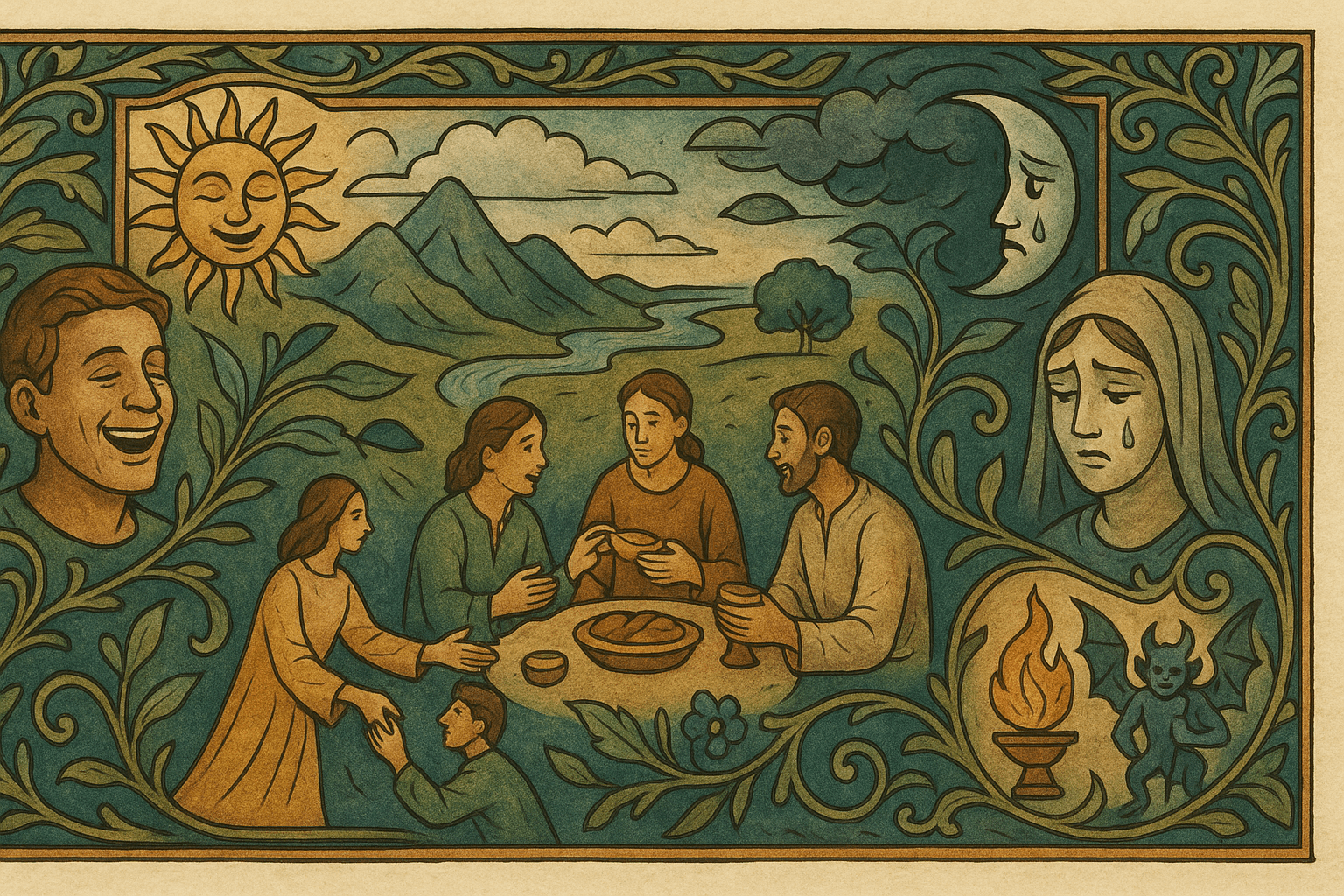Exploring Human Experience in the Latin Phrase-Book

The Latin Phrase-Book serves as a beautiful tapestry of human experience, weaving together our interactions with nature, society, and our own inner worlds. As we navigate through its chapters, we discover how profound and interconnected our lives are, framed by the language of ancient Rome.
In the opening chapters, we’re invited to reflect on the cosmos and creation—how the universe isn’t just a backdrop for human life but an integral part of our existence. The phrases emphasize the harmony within creation, portraying God as the architect who connects humanity to the cosmos. This connection is further illustrated in discussions of geography and the natural world, where the earth’s resources and terrains shape our cultures, lifestyles, and even our identities. The physical landscape, with its mountains and plains, influences where we settle and how we thrive, anchoring us to our environments.
Moving deeper into the text, water emerges as a vital symbol of life and culture. It’s not just a resource, but a dynamic force that shapes civilizations, as rivers and seas dictate the flow of travel, trade, and interaction. The chapters on fire and air introduce us to the dual nature of these elements—fire as both a tool for warmth and creation, and air as a medium for life and connection to the divine. Each element teaches us about the balance we must maintain in our lives, reflecting the necessity of understanding our own emotional and physical states.
As we explore the intricacies of human emotion, the phrase-book captures laughter and tears, joy and pain, revealing how these experiences are universal yet deeply personal. The expressions surrounding health and sickness remind us of our fragility and the need for community and support in times of distress. The emphasis on sleep and dreams invites contemplation on the subconscious aspects of our lives, further emphasizing our complex human nature.
The discussions on virtues and vices delve into the moral landscape, highlighting the struggle between our better selves and the darker impulses that can lead to despair and conflict. This theme resonates in the chapters on law and justice, where the quest for fairness and accountability reflects our societal values.
Moreover, the exploration of domestic life and social interactions paints a vivid picture of community dynamics. The rituals of hospitality and the significance of daily sustenance illustrate how our relationships shape our experiences and identities. Whether it's through the warmth of a shared meal or the bonds formed in domestic spaces, each interaction reinforces our humanity.
As we navigate through themes of war and peace, we see how conflict is an inescapable part of the human experience. The discussions on military life, strategy, and the emotional toll of battle highlight the resilience of the human spirit. Yet, it also prompts critical reflection on the consequences of violence and the pursuit of harmony.
In the end, the Latin Phrase-Book is not merely a collection of phrases; it is a mirror reflecting the complexities of human existence. It invites us to ponder our place in the world, the connections we forge, and the experiences that shape our lives. Through the lens of language, we come to understand that the human experience is a shared journey, rich with emotions, challenges, and triumphs, threading us all together in this vast tapestry of existence.
Books: Latin Phrase-Book
Authors: Carl Meissner
Publishers: Public Domain